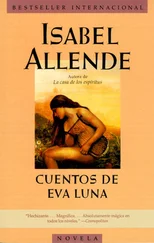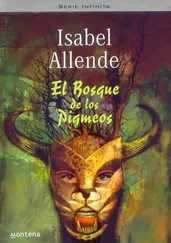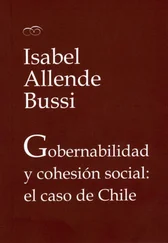Isabel Allende - Zorro
Здесь есть возможность читать онлайн «Isabel Allende - Zorro» весь текст электронной книги совершенно бесплатно (целиком полную версию без сокращений). В некоторых случаях можно слушать аудио, скачать через торрент в формате fb2 и присутствует краткое содержание. Год выпуска: 2005, ISBN: 2005, Издательство: Harper Perennial, Жанр: Исторические приключения, на английском языке. Описание произведения, (предисловие) а так же отзывы посетителей доступны на портале библиотеки ЛибКат.
- Название:Zorro
- Автор:
- Издательство:Harper Perennial
- Жанр:
- Год:2005
- ISBN:9780060779009
- Рейтинг книги:3 / 5. Голосов: 1
-
Избранное:Добавить в избранное
- Отзывы:
-
Ваша оценка:
- 60
- 1
- 2
- 3
- 4
- 5
Zorro: краткое содержание, описание и аннотация
Предлагаем к чтению аннотацию, описание, краткое содержание или предисловие (зависит от того, что написал сам автор книги «Zorro»). Если вы не нашли необходимую информацию о книге — напишите в комментариях, мы постараемся отыскать её.
Zorro — читать онлайн бесплатно полную книгу (весь текст) целиком
Ниже представлен текст книги, разбитый по страницам. Система сохранения места последней прочитанной страницы, позволяет с удобством читать онлайн бесплатно книгу «Zorro», без необходимости каждый раз заново искать на чём Вы остановились. Поставьте закладку, и сможете в любой момент перейти на страницу, на которой закончили чтение.
Интервал:
Закладка:
During the months of her pregnancy, Regina became even more silent and untamed. Using the pretext of comfort, she stopped dressing and combing her hair in the European style. She went down to the ocean to swim with the dolphins that came long distances to mate near the beach, accompanied by a sweet neophyte named Ana, whom Padre Mendoza had sent from the mission. She, too, was pregnant, but she had no husband and had tenaciously refused to confess the identity of the man who had seduced her. The missionary did not want to keep this bad example among his neophytes, but neither could he find it in his heart to banish her from the mission, so he ended up sending her to be a servant in the de la Vega family. It turned out to be a good idea; a quiet complicity between Regina and Ana blossomed immediately, something good for them both, for the former gained a companion and the second won protection. It had been Ana’s idea to swim with the dolphins, sacred creatures that swim in circles to keep the world safe and in good order. Those huge, velvety mammals knew that the two women were pregnant, and lightly brushed past them to give them strength and courage at the moment of giving birth.
In the third week of May, Ana and Regina had their babies. The births coincided with the famous week of the fires, recorded in the annals of Pueblo de los Angeles as the most catastrophic since the founding of the city. Every summer the residents had to resign themselves to watching some of the forest go up in flames because a spark had touched off dry pastureland, but they had never seen anything like the fires that May. Normally the fires were welcome, because they cleared out debris and created space for tender growth the following spring, but that year, according to Padre Mendoza, they were God’s punishment for so much unrepentant sin in the colony. The flames burned down several ranches as they passed, destroying both dwellings and cattle that had nowhere to escape to. On Sunday the winds changed and the fire stopped one mile away from the de la Vega hacienda, which was interpreted by the Indians as an excellent augury for the two newborns in the house.
The spirit of the dolphins helped Ana during her delivery, but not Regina. While the former had her baby in four hours, kneeling on the ground and with a young kitchen girl as her only help, Regina was in labor for fifty hours, a torment that she bore stoically as she clamped down on the stick between her teeth. Alejandro de la Vega, desperate, summoned the one midwife in Pueblo de los Angeles, but she admitted defeat when she realized that the baby was crosswise in the womb and that Regina lacked the strength to keep fighting. So Alejandro called for Padre Mendoza, the closest thing to a doctor around. The missionary started all the servants praying the rosary, sprinkled Regina with holy water, and prepared to extract the baby. Thanks to pure determination, he succeeded in grasping its feet; he tugged it toward the light, worried only that time was running out. The cord was wrapped around the baby’s neck, and he was turning blue, but with prayers and well-delivered slaps Padre Mendoza forced him to breathe.
“What name shall we give him?” he asked when he placed the baby in his father’s arms.
“Alejandro, like me, my father, and my grandfather,” he replied.
“He will be called Diego,” Regina interrupted, drained by fever and by the steady trickle of blood soaking the sheets.
“Why Diego? No one in the de la Vega family is named Diego.”
“Because that is his name,” she replied.
Alejandro had suffered with her through the long hours of labor, and more than anything in the world he feared losing her. He saw that she was losing blood and he could not bring himself to argue with her. He concluded that if on her deathbed she had chosen that name for her firstborn, she must have good reason, so he authorized Padre Mendoza to baptize the boy on the spot; he seemed as weak as his mother and he ran the risk of ending up in limbo if he died before receiving the sacrament.
It took Regina several weeks to recover from the battering of the birth, and then it was only because her mother, White Owl, arrived, barefoot and carrying her bundle of medicinal plants over her shoulder, just as candles were being set out for Regina’s funeral. This medicine woman had not seen her daughter for seven years that is, since the day she went off into the forest to round up warriors from other tribes.
Alejandro attributed the timely appearance of his mother-in-law to the Indians’ communication system, a mystery the whites could never unravel. A message sent from the Presidio in Monterey took two weeks to reach Baja California, with horses dropping beneath their riders, but when it arrived it was already old news to the Indians, who had received it ten days before through some magical means. There was no other explanation for how that woman could have appeared out of nowhere without being summoned, just when she was needed most. White Owl took over without saying a word. She was little more than forty, tall, strong, beautiful, weathered by sun and hard work. Her young face, with honey-colored eyes like her daughter’s, was framed by an untamed mop of smoke-colored hair, to which she owed her name. She came in without asking permission, pushed Alejandro de la Vega aside when he attempted to find out who she was, walked straight through the complicated layout of the mansion, and stopped at her daughter’s bed.
She called her by her true name, Toypurnia, and spoke to her in the tongue of their ancestors, until the dying woman opened her eyes. Then from her pouch she took the medicinal herbs needed to save her, boiled them in a clay olla over the brazier that warmed the room, and gave them to her to drink. The entire house was saturated with the odor of sage.
In the meantime, Ana, with her habitual good nature, had taken Regina’s child, whimpering with hunger, to her breast; thus Diego and Bernardo, Ana’s son, began their lives with the same milk and in the same arms.
That made them milk brothers for as long as they lived.
Once White Owl found that her daughter could stand, and that she could eat without being nauseated, she put her plants and belongings back into her pouch, took one look at Diego and Bernardo, who were sleeping side by side in the same cradle without showing the least sign that she was curious about which of the two was her grandson and left without a goodbye. Alejandro de la Vega watched her go with great relief. He was grateful that she had saved Regina from certain death, but he was happier to be grateful from a distance; he felt uncomfortable under that woman’s influence, and worse, the Indians on the ranch were becoming insolent. They appeared for work in the morning with faces streaked with paint, at night they danced like sleepwalkers to the sound of mournful ocarinas, and in general they ignored his orders as if they had lost their Spanish.
Normality returned to the hacienda at the same rate that Regina recovered her health. By the following spring, everyone except Alejandro de la Vega had forgotten that Regina had had one foot in the grave. It did not require medical training to deduce that she could not have any more children. Without his realizing, this knowledge began to come between Alejandro and his wife as he turned his devotion to Diego. He had dreamed of a large family, like those of other dons in the region. One of his friends had fathered thirty-six legitimate children in addition to the bastards that he didn’t bother to count. He had twenty children from his first marriage in Mexico, and sixteen from the second, the last five born in Alta California, one per year. The fear that something bad would happen to that one irreplaceable son, as it did to so many small children who died before they learned to walk, kept de la Vega awake at night. He formed the habit of praying aloud, kneeling beside his son’s bed, crying out to heaven to watch over him.
Читать дальшеИнтервал:
Закладка:
Похожие книги на «Zorro»
Представляем Вашему вниманию похожие книги на «Zorro» списком для выбора. Мы отобрали схожую по названию и смыслу литературу в надежде предоставить читателям больше вариантов отыскать новые, интересные, ещё непрочитанные произведения.
Обсуждение, отзывы о книге «Zorro» и просто собственные мнения читателей. Оставьте ваши комментарии, напишите, что Вы думаете о произведении, его смысле или главных героях. Укажите что конкретно понравилось, а что нет, и почему Вы так считаете.











